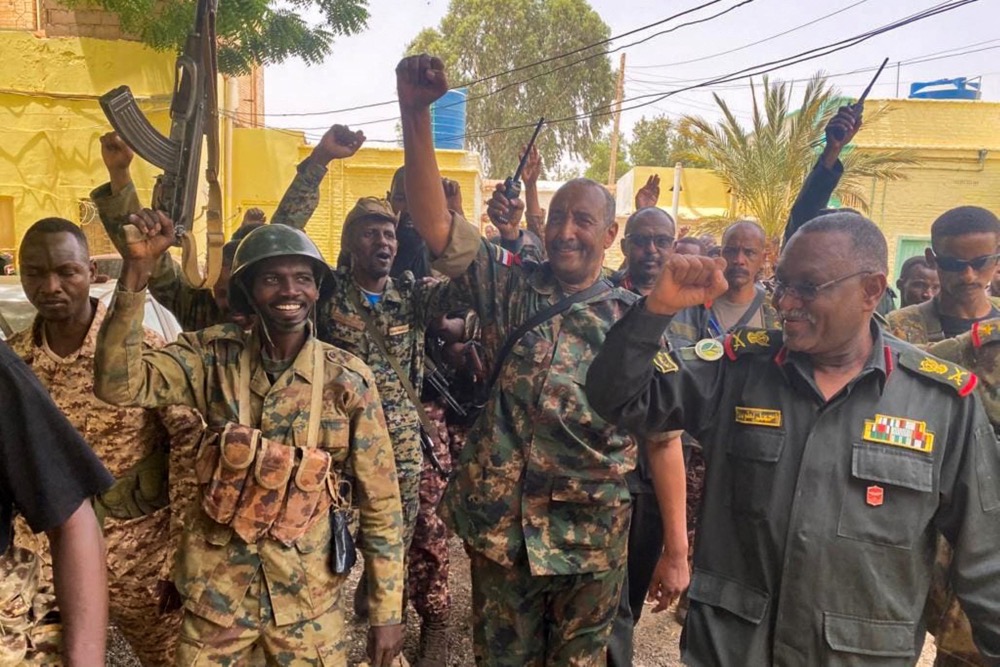WASHINGTON: US-arranged flights have brought about 350 Americans and their immediate relatives out of Lebanon this week during escalated fighting between Israel and Hezbollah, while thousands of others still there face airstrikes and diminishing commercial flights.
In Washington, senior State Department and White House officials met Thursday with two top Arab American officials to discuss US efforts to help American citizens leave Lebanon. The two leaders also separately met with officials from the Department of Homeland Security.
Michigan state Rep. Alabas Farhat and Abed Ayoub, executive director of the American-Arab Anti-Discrimination Committee, used the White House meeting to “really drive home a lot of important points about the issues our community members are facing on the ground and a lot of the logistical problems that they’re encountering with it when it comes to this evacuation,” Ayoub said.
Some officials and community leaders in Michigan, home to the nation’s largest concentration of Arab Americans, are calling on the US to start an evacuation. Pentagon spokeswoman Sabrina Singh said that was not being considered right now.
“The US military is, of course, on the ready and has a whole wide range of plans. Should we need to evacuate American citizens out of Lebanon, we absolutely can,” Singh told reporters.
Israel has opened a pounding air campaign deep into Lebanon and a ground incursion in the country’s south targeting the Iranian-backed Hezbollah militant group. Iran on Tuesday fired nearly 200 ballistic missiles toward Israel, leaving the region bracing for any Israeli retaliation and fearing an all-out regional war.
Israel and Hezbollah have traded fire across the Lebanon border almost daily since the day after Hamas, another Iranian-backed militant group, attacked Israel on Oct. 7, triggering the war in Gaza.
Other countries, from Greece to the United Kingdom, Japan and Colombia, have arranged flights or sent military planes to ferry out their citizens.
As Israeli bombardments targeting senior Hezbollah leaders shook southern neighborhoods in Lebanon’s capital last week, “We could still see, hear and feel everything” despite fleeing to the mountains outside Beirut, said Nicolette Hutcherson, a longtime humanitarian volunteer living in Lebanon with her husband and three children.
The only seats Hutcherson’s family could find on commercial carriers were for flights weeks away and for thousands of dollars, she said. Ultimately, Hutcherson and her young children joined crowds heading to Lebanon’s Mediterranean marinas, finding spots on pleasure boats turned evacuation ships for the nine-hour ride to Cyprus.
Her husband was able to find a single seat out on a plane days later to join them.
Another American family was mourning Kamel Ahmad Jawad, a resident of metro Detroit’s Dearborn area, who was killed in southern Lebanon on Tuesday. Family members said he stayed to help civilians too old, infirm or poor to flee.
He had been on the phone with his daughter Tuesday when the impact of a strike knocked him off his feet, his daughter, Nadine Kamel Jawad, said in a statement.
“He simply got up, found his phone, and told me he needed to finish praying in case another strike hit him,” she said.
The State Department has been telling Americans for almost a year not to travel to Lebanon and advising them to leave the country on commercial flights for months. It also has made clear that government-run evacuations are rare, while offering emergency loans to aid travel out of Lebanon.
Some Americans said relatives who are US citizens or green-card holders have been struggling for days or weeks to get seats on flights out of Lebanon. Limits on withdrawing money from banks due to Lebanon’s longstanding economic collapse and intermittent electricity and Internet have made it difficult, they said.
Rebecca Abou-Chedid, a lawyer based in Washington, paid $5,000 to get a female relative on the last seat of a flight out of Beirut on Saturday.
“She was on her way to the airport” when Israeli began one of its first days of intensified bombing, Abou-Chedid said.
By Thursday, some Americans said their loved ones had been able to secure tickets for upcoming flights and were hopeful.
State Department spokesman Matthew Miller said the US would continue to organize flights as long the security situation in Lebanon is dire and there is demand.
Miller said Lebanon’s flag carrier, Middle East Airlines, also had set aside about 1,400 seats on flights for Americans over the past week. Several hundred had taken them, he said.
Miller could not speak to the cost of the airline’s flights, over which the US government has no regulatory oversight, but said the maximum fare that would be charged for a US-organized contract flight would be $283 per person.
More than 6,000 American citizens have contacted the US Embassy in Beirut seeking information about departing the country over the past week.
Not all of those have actually sought assistance in leaving, and Miller said the department understood that some Americans, many of them dual US-Lebanese nationals and longtime residents of the country, may choose to stay.
Miller said the embassy is prepared to offer temporary loans to Americans who choose to remain in Lebanon but want to relocate to a potentially safer area of the country. The embassy also would provide emergency loans to Americans who wish to leave on the US-contracted flights.
US arranges flights to bring Americans out of Lebanon as others seek escape
https://arab.news/5c3m8
US arranges flights to bring Americans out of Lebanon as others seek escape

- Some officials and community leaders in Michigan, home to the nation’s largest concentration of Arab Americans, are calling on the US to start an evacuation
- Pentagon spokeswoman Sabrina Singh said: “The US military is, of course, on the ready and has a whole wide range of plans”


































